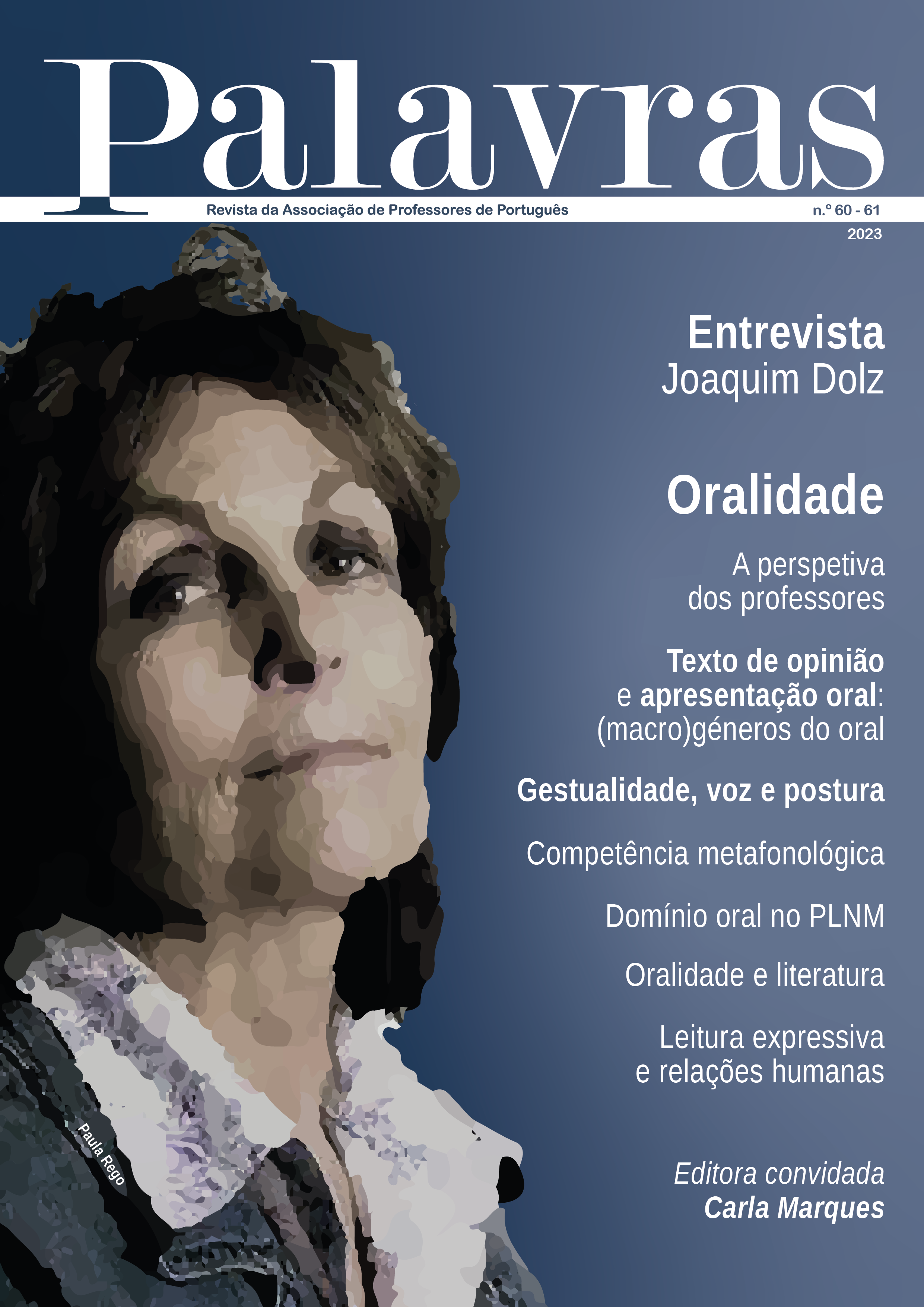Assessing comprehension and oral expression:
Challenges for a present future?
Abstract
APP asks me to reflect on the evaluation of orality, and I am both elated and afraid. I clarify: as a foreign language teacher, it is an area, let's say, close to my heart, forgive me for the Anglicism that I carry ingrained. In foreign language teaching, and in its main framing documents, oral production (speaking, sprechen, hablar, l'expression orale, just to focus on the main foreign languages of the Portuguese curriculum) is, in itself, a skill learning object within communicative competence. Although we know that, in an interaction situation, oral comprehension will never cease to occur (listening, hören, auditory comprehension, oral comprehension), they are, by right, independent domains within communication skills. This is not the case in Portuguese teaching, as we can see from reading the Essential Learning of the subject, when the basic principles of what students should develop in the field of speaking are established – that is, understanding and expression. As far as this brief and humble text is concerned, I will speak of orality in the context of oral expression – not because I presume the ability to judge the scientific basis of one or another point of view on what constitutes the domain of orality, but rather because It is expression, not understanding, that is the object of my reflection.



